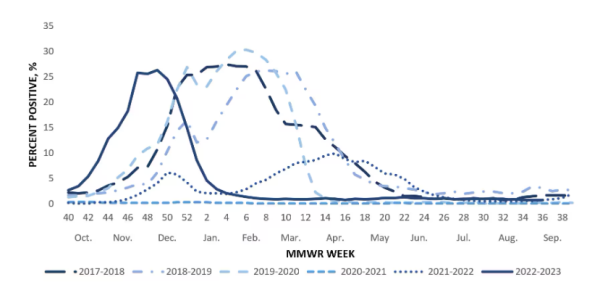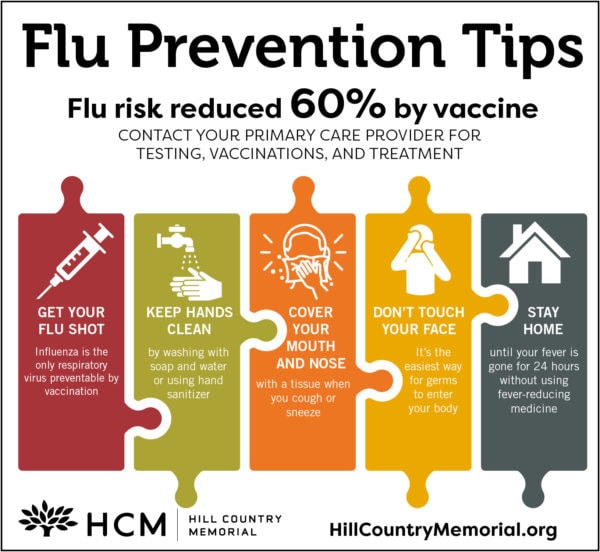The Flu has been around for quite a long time, cursing us with inescapable influenza seasons. In 1945, Thomas Francis Jr. led the development of the first inactivated flu vaccine approved for civilian use. Despite this discovery, influenza is a highly mutant vaccine. It is difficult for one flu shot to protect the various strains of the virus. Due to this, flu cases increased from October to January, adding coughs and sniffles to a harsh winter. To fully understand the flu, it’s best to analyze why it is so common and what we can do to minimize the quantity of influenza cases.
Why is the flu so common?
An absence of essential cleanliness is why influenza is so common. Nurse Anthony at APK emphasizes that the number one priority for students should be “personal hygiene, specifically hand washing.” She also mentions that most students do not wash their hands and “ingest foreign bacteria without realizing it.” A lack of hygiene compromises student health and puts others at risk. Sophomore Ashlynn Speck shares that even those with

clean hygiene “suffer from compromised immune systems.” It is noted that she gets sick often despite carrying sanitizer and taking her cleanliness seriously. One of her biggest concerns is that people “leave surfaces unclean,” making it easy for those vulnerable to pick up the bacteria and get sick. Aside from the lack of basic hygiene, influenza thrives in winter. During the winter, the cold weather keeps people indoors and closer together. Since we spend more time inside, it’s much easier for influenza to spread. The virus also lives longer indoors because the air is less humid than outside. We can thank the cool and dry climate for the seasonal nature of influenza.
How can we minimize the spread?

Minimizing a flu outbreak starts with staying home. If students do show up to school sick, the bare minimum should be wearing a mask, regularly sanitizing, and maintaining a distance from others.
Despite being a controversial topic, influenza cases decreased when students wore masks at school. Mr.Houvouras, a teacher at Apopka, shares that he has been sick multiple times this year. However, he claims that when “everyone was wearing masks, I didn’t get sick once during the school year.” Junior Jaden Heard shares that minimizing the spread of sickness is very important because students get so much work and little time to make it up. After missing four days of school due to the flu, she worried about making up the work she missed for her AP classes. The number of students who miss school due to the flu outbreak is overwhelming. Rasha Salem, a sophomore, acknowledges that there is “rarely perfect attendance in class, and a majority of those absences are due to the flu.” To prevent significant absences, redirecting efforts towards sanitization policies and practices would benefit the school.
Why get the Vaccine?
The best way to fight against influenza is to get vaccinated each year. The flu is a contagious virus that can lead to severe illnesses, hospitalization, or death. However, getting the flu vaccine once does not prevent you from getting influenza the following year. Flu vaccines are constantly changing, meaning new flu vaccines are updated yearly. Since protection from the flu vaccine declines over time, yearly vaccination is needed for the best protection.
Flu Vaccine Drive at APK
Each year in October, a flu vaccine drive takes place at APK. Nurse Anthony points out that “students don’t take advantage” of the fact that vaccines are offered at school. It was reported that out of 3,000 students, only 20 took the opportunity to get the flu vaccine at the school. As someone who got the flu vaccine during school, the process took less than five minutes and a small amount of class time. I cannot recommend getting the vaccine enough.
Final thoughts
As influenza season creeps upon us, we can learn new strategies on the best way to safeguard ourselves and other people. Investigating seasonal influenza at a local level assists us with chipping away at a cleaner and influenza-free way of life.
Sources
CDC. (2022, September 20). Learn more about the flu season. Centers for Disease Control and Prevention. https://www.cdc.gov/flu/about/season/index.html
Winter Illness Guide. (n.d.). Www.hopkinsmedicine.org. https://www.hopkinsmedicine.org/health/conditions-and-diseases/winter-illness-guide#:~:text=Colds%2C%20flus%20and%20other%20respiratory







